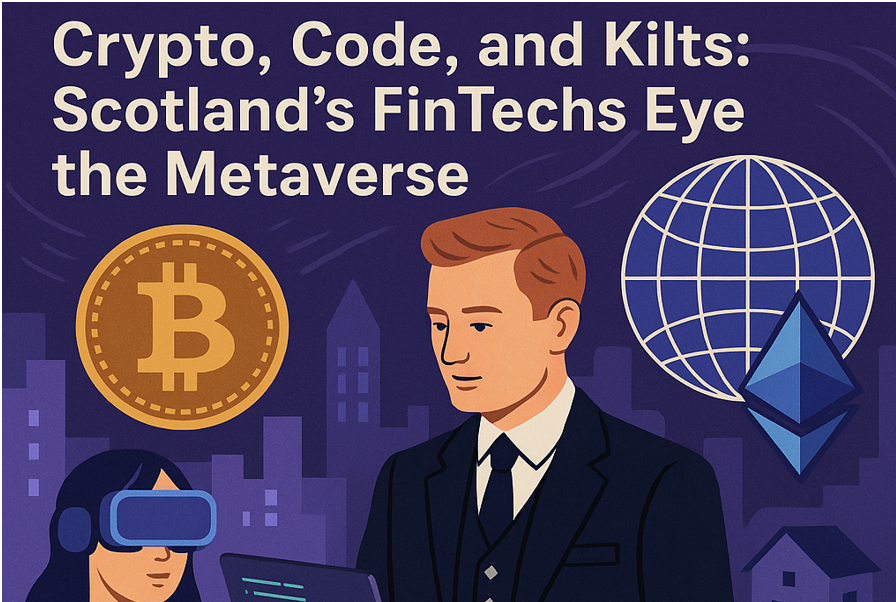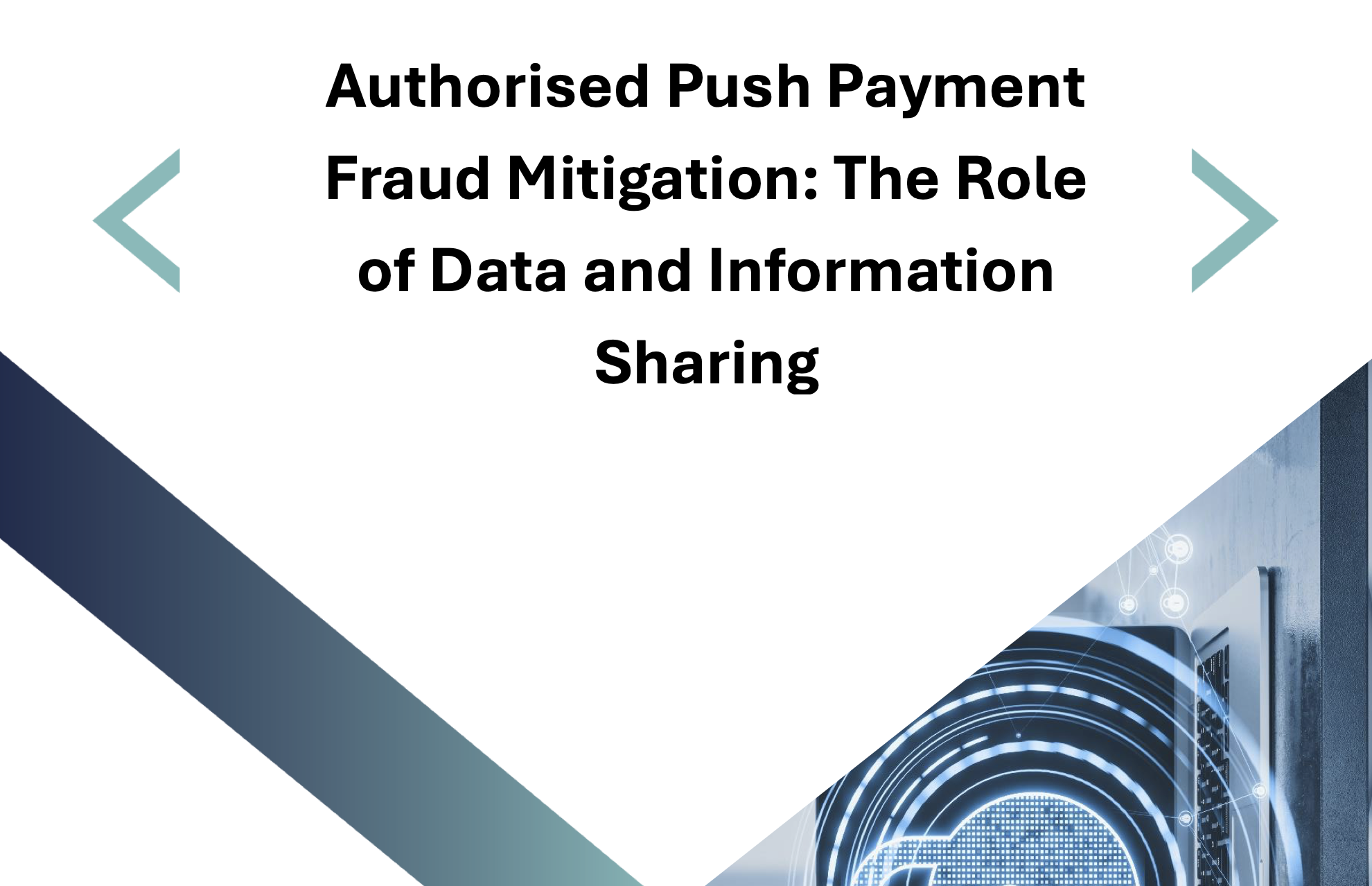Crypto, Code, and Kilts: Scotland’s FinTechs Eye the Metaverse

The metaverse is not the internet extended online; it’s a virtual, always-present universe where users can engage and with other users, and with the world, in real time. Decentraland, The Sandbox, and HTC Viverse are some of the earliest innovators, providing virtual worlds for social interaction, gaming, business, and entertainment. Platforms are growing exponentially, with virtual real estate markets alone reaching $1.4 billion in 2022, 180% year-on-year.
These virtual assets fund this new metaverse economy. The user payments in these areas need to be preceded by secure, scalable, and efficient financial services. Scottish fintech firms can bridge this gap at this point.
Why Scottish FinTechs Ought to Take Notice
Scotland is a natural candidate for fintech metaverse leadership for several reasons:
- Innovation heritage in finance and technology (host to the Bank of Scotland, one of the oldest in the world).
- Edinburgh and Glasgow as global fintech hubs.
- UK pro-business policies and regulatory sandboxing possibilities.
- Solid academic foundation facilitating blockchain, AI, and quantum computing R&D.
Harnessing these strengths, Scottish fintechs can offer the infrastructure to secure, grow, and make the metaverse economy accessible.
Scottish Fintech Opportunities in the Metaverse
- Facilitating Seamless Payments
Metaverse legacy payment systems also break down due to latency, security, and interoperability. Scottish fintechs can create and deploy metaverse-native payment solutions. Some of them are:
- Cryptocurrency Payment Gateways: Enabling users to pay in cryptos like Bitcoin, Ethereum, or stablecoins.
- NFT-Based Transactions: Enabling users to buy and sell digital assets using NFT marketplaces.
- Cross-Platform Payment Systems: Developing cross-platform transaction solutions.
With blockchain technology, such payment systems are able to provide transparency, security, and efficiency in the midst of the virtual economy’s inherent challenges.
- Digital Asset Management
The boom of the digital asset metaverse demands strong management solutions. Scottish fintechs can create platforms upon which users can store their digital assets securely, track, and manage them, for instance:
- Digital Wallets: Empowering users to be able to benefit from secure storage of cryptocurrencies and NFTs.
- Asset Tracking Tools: Providing information and insights into the value and performance of digital assets.
- Portfolio Management Services: Helping people to diversify and manage their portfolios of digital assets.
These services can make people experts in decision-making and achieving optimum advantages from their digital assets.
- Virtual Financial Services
With the maturity of the metaverse comes the maturity of the need for conventional financial services within such virtual environments. Scottish fintechs can be at the forefront in being innovative by providing such services as:
- Virtual Banking: Virtual branch establishment through which consumers can access banking services in the form of loans, savings accounts, and advice on finances.
- Insurance Products: Creating insurance products specific to the virtual environment and assets.
- Investment Platforms: Establishing venues through which users can invest in metaverse property, digital artwork, and other assets of the metaverse.
By incorporating these services into the metaverse, Scottish fintechs will connect mainstream finance to the virtual economy.
Strategic Benefits of Scottish Fintechs
- Organic Financial Ecosystem
Scotland has a well-established financial services industry with Edinburgh and Glasgow being key hubs for banks, insurers, and investment companies. This established environment is perfectly suited to allow fintechs to grow and thrive in the metaverse.
- Favorable Regulatory Environment
UK regulatory environment provides reassurance and relief to fintech firms, especially those dealing with new-generation technologies such as blockchain and cryptocurrency. Such a facilitative climate will assist in smoothening the spread and roll-out of financial products derived from the metaverse.
- Talent and Innovation Access
Scotland has a robust tech community and top-class universities, adequate access to leading talent, and frontier-level research. Access to the latter pool is most critical in creating innovative solutions fit for the metaverse.
- AML, KYC-as-a-Service, and Compliance
Meta-mode operations pose significant regulatory issues, particularly issues of money laundering, identity theft, and jurisdictional compliance.
Scottish fintechs with regtech experience can provide:
- AI-driven transaction monitoring platforms for virtual economies.
- Avatar-based KYC services using facial recognition or voice biometrics.
- Decentralized identity systems that are GDPR- and UK data protection legislation compliant.
Fintech providers such as Symphonic Software (policy-based access control) or The ID Co. (financial identity specialists) could leverage their products into this environment.
- Decentralized Finance (DeFi) and DAOs
Decentralized finance—DeFi—is one of the pillars of the metaverse ecosystem. It allows trustless, peer-to-peer financial systems without brokers or banks.
Scottish fintechs can:
- Develop DeFi protocols for lending, borrowing, and staking in metaverse tokens.
- Develop DAO governance platforms for controlling community-owned financial institutions.
- Provide DeFi risk analytics platforms to enable users to evaluate protocol safety.
By connecting with Ethereum-based DeFi or Layer-2s such as Arbitrum and Optimism, these businesses are able to tap into an emerging global phenomenon while taking Scottish fintech IP to the world.
Challenges and Considerations
- Regulatory Uncertainty
The metaverse is ubiquitous, frequently making legacy finance regulation useless. Scottish fintechs need to navigate this intricate regulatory environment to stay compliant and risk-free.
- Security and Privacy Issues
The virtual metaverse online environment is susceptible to cyber attack. Fintechs need to have proper security measures that protect user information as well as financial transactions.
- User Adoption
User adoption can destroy or create financial services in the metaverse. Scottish fintechs need to invest in user education and offer interfaces that are simple to use so that they can enable high usage.
Looking Ahead: The Next Five Years
As the metaverse transitions from experimental to critical, fintech will transition from backend utility to frontline enabler of digital life.
We can expect to see:
- A virtual Scottish stock exchange for digital assets.
- Interoperable digital IDs created in Scotland are used worldwide.
- Tokenized whisky or property exchanged within metaverse marketplaces.
- Avatar-based banking is linked to Web3 wallets and VR headsets.
By 2030, metaverse financial services might be a multibillion-pound industry, with Scotland positioned as a global hub for this emerging economy.
Conclusion
The metaverse represents a new and exhilarating frontier for the digital economy, with unprecedented scope for innovation in financial services. Scottish fintechs, in their cutting-edge capability and nurturing environment, are best placed to spearhead the progression of payment infrastructure capability, digital asset management ability, and virtual financial services fitting for this new virtual world. By embracing these opportunities, Scottish fintechs can spearhead the construction of the metaverse’s finance future.
Author’s Bio:

Druti Banerjee
Content Writer
LinkedIn: Druti Banerjee
Druti Banerjee is a storyteller at heart following the precision of research with the art of words. Druti, a content writer for The Insight Partners, combines creative flair with in-depth research to create words that bewitch. She approaches every piece she does with an academic yet approachable perspective, having a background in English Literature and Journalism.
Beyond the screen, Druti is a passionate art enthusiast whose love of creativity is rooted in the creations of great artists such as Vincent Van Gogh. An avid reader, dancer, and ever-ready to pen down thoughts, always up for binge-watching and chai on repeat. Preacher of the following vision by Vincent Van Gogh, “What is done in love, is done well”, draws inspiration from the realms of art, history, and storytelling to bring to life via writing the rich hues of culture and the complexity of human expression. The aim is to capture the nuance of the human experience—one carefully chosen word at a time.



